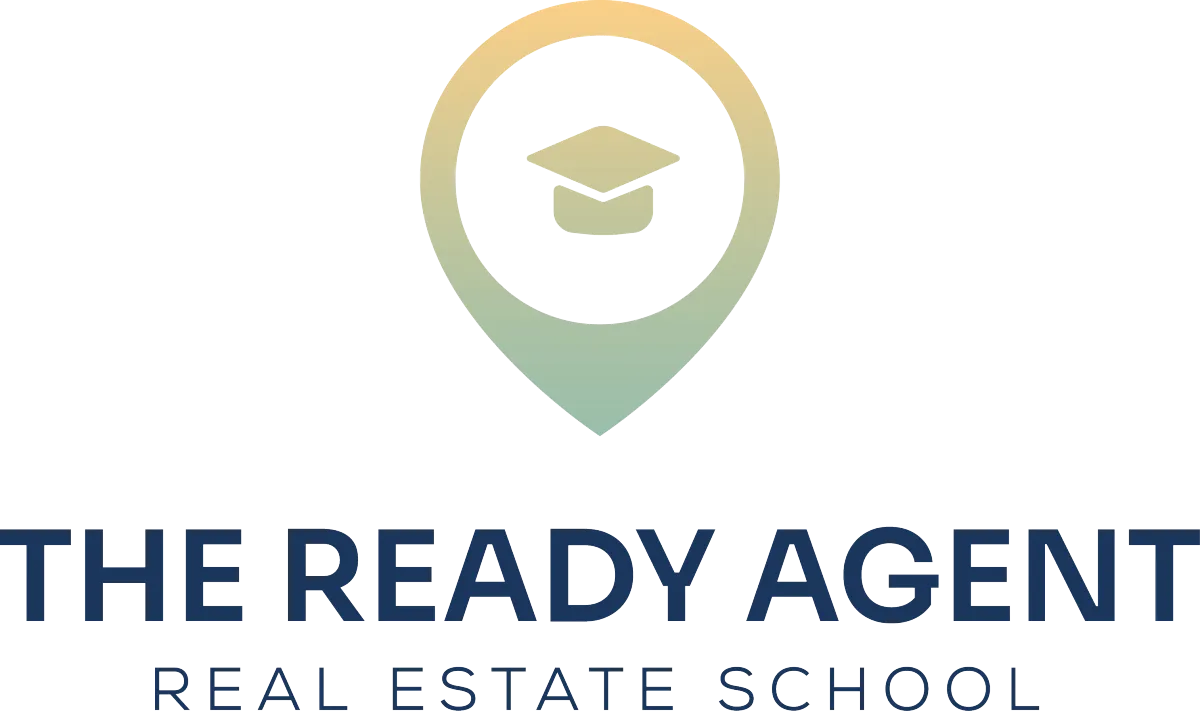
Breaking Down Real Estate License Expenses for Aspiring Agents
Many aspiring agents are unaware of real estate license expenses. This involves obtaining and maintaining a real estate license. Real estate is a lucrative field, offering individuals various opportunities. This can be in building their own business and earning a potential sizable income.
Aspiring agents should consider several factors when budgeting for their new career. This ranges from exam fees to continuing education requirements to coursework expenses. You must understand the true cost and how committed you are to your finances. Do this before you take the leap and dive into this competitive industry to succeed as a real estate agent.
Do you consider having a career in real estate? But do you hesitate about the costs involved in obtaining and maintaining a license?
This blog aims to help aspiring real estate agents make an informed decision. This is the question of whether pursuing a career in the real estate industry is the right path for you. We will break down the real estate license expenses involved in being a licensed agent.
Overview of Real Estate License Expenses
Planning the finances involves several expenses to get a real estate license. Aspiring agents must understand the full scope of these expenses. These range from pre-licensing education to ongoing expenses like marketing and association fees. You must know what to expect to be confident in your decision to pursue a real estate career.
Pre-Licensing Education Costs
The courses for the required pre-licensing education have varying costs. It is dependent on your location and your chosen educational provider. You must complete this education before taking the real estate licensing exam.
Researching different educational providers helps you find the best option for your budget. You can make comparisons between their prices for the required coursework. The expected average pay ranges from $200 to $1,000 for each course.
The cost of study materials is another factor to consider besides these courses. They can vary and need you to allot an additional $100 to $300 budget. These study materials include textbooks, practice exams, and online resources. You must invest in quality ones for your real estate licensing exam. Your chances of passing this exam on your first attempt will increase. After completing all these requirements for pre-licensing education, you are eligible to take this exam.
Exam and Licensing Fees
Passing a state licensing exam makes you a licensed real estate agent. The fee for this exam is non-refundable, ranges from $100 to $300, and depends on your location. A state regulatory agency or a designated testing provider administers this exam. Adequate exam preparation can help you avoid retaking it. You also prevent incurring additional expenses. You can fulfill any obligations with no financial strain.
Besides this exam fee, you must pay a licensing fee to your state regulatory agency. It usually ranges from $100 to $300. Checking the regulatory agency in your state helps you determine the exact fee. Each state has varying licensing fees. This also helps you know any additional requirements you need to prepare. Budgeting for ongoing licensing expenses ensures financial planning and stability in your career. Be mindful of licensing fees, whether you are an aspiring or established real estate agent.
Post-Licensing Education and Continuing Education Costs
Your learning must not stop after obtaining your real estate license. Newly licensed agents still have requirements in many states. One of which is completing post-licensing education according to schedule. Since the cost of this education varies, you allot an additional $200 to $500 budget for these courses.
Besides post-licensing education, real estate agents must complete continuing education courses. This is on an annual or biennial basis. These courses help you maintain your license. The topics covered in these courses include fair housing, ethics, and legal updates. The cost of these courses varies. It depends on your location and your chosen education provider. The average pay for these courses ranges from $100 to $300 per year.
Association and MLS Fees
Being a real estate agent has an essential part. You join a real estate association and gain access to the Multiple Listing Service (MLS). The fees for these valuable resources may seem steep. But these benefits from these valuable resources come at a cost and can exceed the costs. These are additional costs beyond the basic requirements of having a real estate license.
Association fees range from $100 to $1,000 per year. It depends on the chosen association and your location. Associations provide many opportunities for networking, support, and educational resources. This can enhance the career prospects of the licensed agent. Meanwhile, MLS fees vary and allot an additional $100 to $500 budget per year. The MLS makes a vast database of properties for sale accessible for agents.
Marketing and Advertising Expenses
Your success as a real estate agent depends on marketing and advertising. You design and print business cards and create online ads and marketing materials. The cost of these expenses varies depending on your budget and how you put the strategies in place. It also depends on the agent's target audience. Allocating these resources for effective marketing initiatives builds a successful real estate business. This also helps you attract clients and generate leads.
But these expenses are quick to add up. Estimating an exact cost for these expenses is difficult. Online advertising platforms and search engine optimization services are among these expenses. These also include social media marketing and print materials like flyers and brochures. Part of your budget can be for marketing and advertising expenses. You should allot at least $500 to $1,000 in budget per month.
Technology and Software Costs
Real estate agents must have the right technology and software today. These tools involve customer relationship management (CRM) software, website hosting, and email marketing platforms. Investing in these tools helps you streamline your business and stay organized. The services you provide to your clients are better. You also stay ahead of the competition.
CRM software can help you keep track of your leads and establish effective client communication. Website hosting maintains your online presence and attracts potential buyers and sellers. Use email marketing platforms to reach a wider audience and provide effective promotion of your services.
Reflect on your needs and preferences before choosing these tools. There are premium software solutions or more affordable alternatives to your budget. But these tools have a price. Research different options and check their features, pricing, and customer reviews. Your budget for these expenses can be at least an average of $100 to $200 per month.
Insurance and Legal Expenses
You should protect yourself and your business in the real estate industry. For this reason, you must secure professional liability insurance. This is also known as errors and omissions (E&O) insurance. You will have peace of mind and protection against potential lawsuits or claims for your professional services. Its cost varies and depends on your location, chosen provider, and coverage limits. The average expected payment for this insurance ranges from $500 to $1,500 per year.
Besides insurance, there are various reasons you should consult with legal professionals. These reasons include legal advice and contract reviews. Having a contingency fund set aside ensures your payment for these unexpected expenses. Varying legal expenses are dependent on the attorney's fees and the situation's complexity.
Maximizing ROI: Calculating the Value of Your Investment
Aspiring agents should consider the cost of obtaining a real estate license. They should view it as a strategy to invest in the growth of their career in the future. Adopting this mindset makes you a licensed real estate professional. It provides a clear understanding of the benefits and opportunities in the long term.
You should check the return on investment (ROI) of obtaining a real estate license. This helps you assess the potential earnings. You will know the opportunities you can avail of for your career to advance in this industry.
You can research market trends and average commission rates. You also include the demand for real estate services in your area. These insights are valuable for your income potential in your real estate career.
Additionally, aspiring agents should calculate the ROI to make informed decisions. This pertains to their investment in pursuing a career in real estate. Compare the expected earnings as a licensed agent and the total cost of having your license.
Practical strategies you can execute help cut expenses and optimize your earning potential:
Find affordable educational options, like online courses, for pre-licensing education.
Use free or low-cost resources to prepare for exams, such as online tutorials and study guides.
Gain insights and advice through networking with experienced professionals in real estate.
Enhance your visibility and attract potential clients using technology and digital marketing tools.
Invest in professional development and training opportunities to stay competitive.
Final Thoughts
Aspiring agents must understand the true cost of obtaining a real estate license. Your financial investment is your license. These necessary expenses help them embark on their real estate journey. Pre-licensing education costs, association fees, and marketing expenses are among these expenses.
Planning ahead and allocating funds for these expenses helps you pursue your career. Financial planning should be part of the licensing process. This builds your confidence and foresight in navigating the expenses.
You must first make a thorough assessment of the expenses involved. This helps you make informed decisions and effective plans with your financial resources. Informed decision-making can mitigate unnecessary costs and maximize the value of your investment. You can seek out affordable educational options and leverage technology for marketing. You should continue investing in your professional development.
Consider choosing The Ready Agent Real Estate School to kickstart your career. Our comprehensive curriculum covers all the essential topics to ensure your success. We also accommodate your needs with our flexible learning options and experienced instructors. You can also enjoy our career resources to support you launch and grow your careers.
Ready to maximize your investment in pursuing a rewarding career in real estate?
Invest in your future success and enroll now!

Check Out Our Blog
About
Content
© 2024 The Ready Agent Real Estate School. All rights reserved


